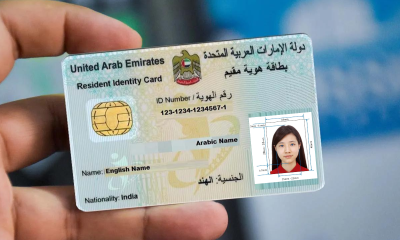UAE Leave Explained – 9 Types of Time Off for Employees. In the UAE, employees are known for meticulously planning their holidays to maximize their annual leave. With long weekends and public holidays on the horizon, such as the anticipated four-day break in December for UAE National Day, it’s essential for workers to understand their leave entitlements fully. While the UAE Labour Law guarantees 30 days of paid annual leave each year, there are several other ways employees can take time off. This article will break down the nine types of leave available to employees in the UAE, ensuring you know your rights and entitlements.
UAE Leave Explained – 9 Types of Time Off for Employees
1. Annual Leave
Annual leave is one of the most anticipated types of leave for any employee. Under the UAE Labour Law, employees are entitled to a fully paid annual leave after completing six months of service with their employer. The specifics of the leave entitlement are as follows:
- 30 Days: Granted if the employee has completed one year of service.
- Two Days Per Month: Granted if the employee has completed six months but not a full year of service.
If an employee’s service is terminated before they use their annual leave, they are entitled to compensation for the unused portion. Part-time employees are also entitled to annual leave based on the actual hours worked, as stipulated in their employment contract.
Employers have the right to schedule annual leave in line with work requirements, but they must notify employees at least one month in advance. Employees can also carry over their annual leave to the next year, with the employer’s consent. However, the UAE Labour Law stipulates that an employer cannot prevent an employee from using accrued annual leave for more than two years.
2. Sick Leave
Sick leave is a vital component of employee welfare. In the UAE, employees are entitled to 90 days of sick leave per year after completing their probationary period. This leave can be taken continuously or intermittently, with the pay structure as follows:
- Full Pay: For the first 15 days.
- Half Pay: For the next 30 days.
- No Pay: For the remaining 45 days.
During the probationary period, sick leave is unpaid and subject to employer approval based on a medical report. Employees are not eligible for paid sick leave if their illness is a result of misconduct, such as alcohol or drug use, or if they violate safety regulations. Employees must notify their employer of their illness within three days and provide a medical report.
3. Maternity Leave
Female employees in the UAE are entitled to 60 days of maternity leave, divided as follows:
- 45 Days: Fully paid leave.
- 15 Days: Half-paid leave.
Maternity leave can be taken up to 30 days before the expected delivery date. Additionally, if a female employee experiences illness due to pregnancy or childbirth, she may take an additional 45 days of unpaid leave, supported by a medical certificate. If the baby is unwell, the mother is entitled to an additional 30 days of fully paid leave, with the possibility of a further 30 days unpaid.
Post-delivery, female employees are entitled to two nursing breaks per day, not exceeding one hour in total, for six months. These breaks are fully paid.
4. Parental Leave
The UAE is the first Arab country to introduce parental leave for private sector employees. Parents are entitled to five working days of paid parental leave, which can be taken from the day of the child’s birth until the child is six months old. This leave applies to both mothers and fathers, reflecting the UAE’s progressive approach to family welfare.
5. Compassionate Leave
In the unfortunate event of a family bereavement, UAE employees are entitled to compassionate leave. The duration depends on the relationship:
- Five Days: For the death of a spouse.
- Three Days: For the death of a parent, child, sibling, grandchild, or grandparent.
6. Hajj Leave
Employees are entitled to unpaid leave to perform Hajj, a significant religious obligation for Muslims. The leave conditions are as follows:
- Duration: Up to 30 days.
- Frequency: Granted only once during employment.
While the UAE Labour Law does not specifically provide for Umrah leave, it may be arranged as part of annual leave or as unpaid leave, subject to employer approval.
7. Official Leave and Public Holidays
As per UAE Labour Law, employees are entitled to at least one paid rest day per week. Additionally, they are entitled to paid leave on public holidays. If an employee is required to work during these holidays, they must be compensated with an additional rest day or receive pay for the holiday plus at least 50% of their basic wage.
8. Study Leave
Employees pursuing education at certified institutions in the UAE are entitled to 10 days of paid study leave per year to sit for exams. To be eligible, an employee must have completed at least two years of service with their employer.
9. Sabbatical Leave
Sabbatical leave is a unique provision in the UAE Labour Law, primarily benefiting Emiratis in the private sector. Emirati employees are entitled to a paid sabbatical leave to perform national service, reflecting the UAE’s commitment to national duty and public service.
Conclusion
This comprehensive guide to UAE employee leave provides a clear understanding of the various types of time off available. Whether it’s annual leave, maternity leave, or the newly introduced parental leave, employees in the UAE are well-protected and supported in balancing their professional and personal lives. Understanding these entitlements ensures that you can make informed decisions about your leave, contributing to a more fulfilling work-life balance.

 Fine4 months ago
Fine4 months ago
 Blog1 year ago
Blog1 year ago
 Fine1 year ago
Fine1 year ago
 EMIRATES INFO HUB1 year ago
EMIRATES INFO HUB1 year ago
 News11 months ago
News11 months ago
 EMIRATES INFO HUB1 year ago
EMIRATES INFO HUB1 year ago
 Blog1 year ago
Blog1 year ago
 EMIRATES INFO HUB1 year ago
EMIRATES INFO HUB1 year ago
 Blog1 year ago
Blog1 year ago
 Blog12 months ago
Blog12 months ago
 Blog1 year ago
Blog1 year ago
 Blog1 year ago
Blog1 year ago
















